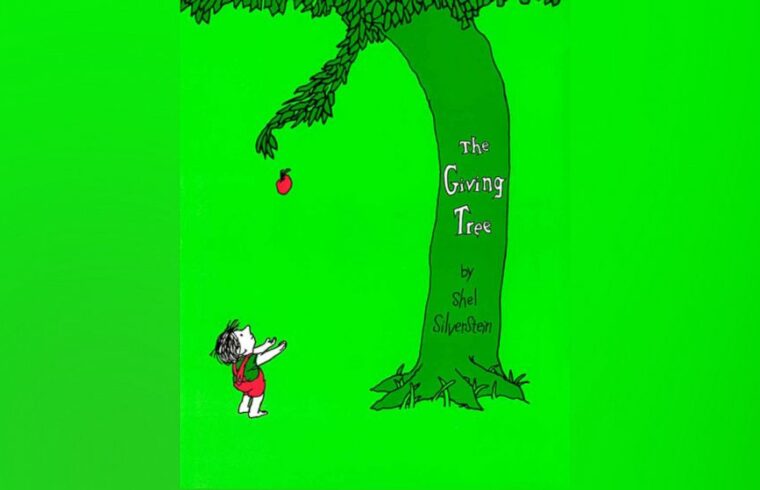With the birth of my Godsons, Goddaughter and nieces over the years, the remembrance of different stories and books that Mom would read to me before bed came to mind. It strikes me as odd that books that I might have read a year or two ago kind of fade from memory very quickly – but I can immediately recall and tell you all about “The Monster at the end of the book” (which, spoiler alert was Grover from Sesame Street); “Me too Iguana” (possibly targeted to me as the youngest who always wanted to do what my brothers were doing) or “The Giant Jam Sandwich” – one of my favorites about a unique way a town dealt with their wasp problem. Maybe those images and stories being told at such an early age were apart of the earliest memories that they are hard to forget.
Hi everyone here’s my homily for the 28th SUNDAY IN ORDINARY TIME – October 11, 2020. Thanks so much for stopping by to read this and even more for sharing it on your Facebook, Twitter, Instagram and everywhere else people share social media posts and your feedback and comments! For the audio version you can get them at SOUNDCLOUD click HERE or from ITUNES as a podcast HERE. Thanks again… I hope you and yours experience all of God’s blessings today and always! In Christ – Father Jim
But one book that has always stayed with me has been “The Giving Tree.” Have any of you read that one?
It’s the story of a boy and a tree who are able to talk to each other. It starts out the boy is a little kid – who would play in the tree, eat her apples, fall asleep in her shade. The boy loved the tree and that made the tree happy. But as the boy became older, things changed. The tree still wanted the boy to play and enjoy the tree as he used to – but the boy explained I’m too big to climb, I want to have things – I want money. The tree explained that she didn’t have money but offered her apples which could be sold and could get him money. So the boy did just that – he climbed, took the apples, sold them and left. Then he’s gone for awhile – some years in fact – and then the boy needs a home for his family, so he returned to the tree, and the tree is happy to see him, but says she doesn’t really have a home to offer him. So she offers her branches to be cut and used to build a home – and so he does just that. He cuts them down, uses them and leaves the tree alone again for years again. Then the boy (now a middle aged man) wants a boat to as he puts it “take me far away from here” (not quite sure what happened with the wife and kids that all of a sudden this guy needed to get out of town, but I digress) – The tree offers her trunk leaving only a stump left. Years later when the boy came back – the tree said “I’m sorry boy, I have no apples left for you to eat,… my branches are gone… you can’t swing on them… My trunk is gone… you can’t climb on it.” After the boy basically explains he can’t eat apples, he’s too old to swing from branches, he’s too frail to climb – he explains he’s simply tired. And the tree offers her stump for a place to rest, which the “boy” does and the book ends “And the tree was happy.”
There was something that was always beautiful and incredibly sad to me about that book. Obviously as a young kid being read the book, I didn’t know that there was any controversy attached to it, especially since it was published back in 1964. A few years ago the School Library Journal (you know it’s credible when the word “Journal” is in the name of the publication) called it the “most divisive book in children’s literature.” Some saw it as a beautiful story illustrating selfless love. Others were more negative saying the boy and the tree had a sado-masochistic relationship (!!!!) And many people espouse different interpretations The tree represents God or Jesus and the boy represents humankind. The tree represents Mother Nature and the boy represents humankind. The tree and the boy are friends. The tree and the boy have a parent-child relationship.
If you didn’t know the story before or hadn’t thought about it much before, I’ve probably destroyed it for you by now. But I can remember even at a young age always feeling weird about it – to the point of one day saying to my mother “Why doesn’t the boy ever say ‘thank you?’” Whether the tree represented my parents or grandparents – or God or Jesus – I got the idea of unconditional, selfless love. But the lack of gratitude on the boy’s part – that he simply came to the tree – used her, took her apples, branches, even her trunk – leaving just her stump – and then just using that – while it was beautiful to see that the tree found joy in giving herself so selflessly – I really kind of felt the boy was a jerk.
Which is what came to mind reading this somewhat bizarre parable that Jesus offers us today. The Gospels over the last few Sundays have contained parables that seem to be getting more direct, containing pretty obvious warnings to the listeners. If you went back and re-read them you almost can hear drumbeats getting louder – as Jesus seems to be moving toward Jerusalem – where he will be betrayed, set up, unjustly condemned to a horrible, torturous death. All of which Jesus sees in his future. Yet his love for all humanity – to come to realize his selfless, his unconditional love being offered compels him to still reach out to them to recognize the gift he is offering of intimate friendship with Him – as they ignore the warnings and continue to scheme, and plot his end.

To understand tonight’s parable, we need a little historical context. Especially that last part… This poor schmo who comes to the Wedding Feast, doesn’t have a tux and then is thrown outside. In Jesus time, a wedding would have been announced with day, time, location to be determined later. So a guest would be invited with the expectation that when the preparations were completed for this 7-10 day celebration, you would also be prepared to go and attend it. The “wedding garment” the guy shows up without – he would’ve already had been offered that from the hosts of the wedding. So the guest must’ve refused it. Forgot it – decided he didnt need it…
Basically what we’re seeing in this entire episode is the ugliness of ingratitude. There are those who are disinterested, and reject the invitation outright. There are others who decide to come on their own terms. At the last minute… nothing better came up, so sure we’ll check it out for a bit…Unfortunately it seems that in our world where friendship is defined as clicking an “accept” button on Facebook and perhaps liking a few things here or there – for many people those types of behaviors or responses might seem acceptable or understandable.
Yet, Jesus seems to be making a very clear point about what friendship means with Him. Yes He is willing to go to Hell and back for us – literally. But there needs to be a response on our part. It’s not enough to think about it for a moment and think “that’s nice… when I have some time I should think about that some more.” It’s not enough for us to show up when we’re ready for it on our own terms and somehow think God should be glad we squeezed some time in for Him. We have to recognize that God isn’t demanding us be slaves and that he is a task master. In Jesus Christ, He is revealed to us as a Loving, Merciful Father. And in the gift of himself offered on the Cross for you, for me, we become God’s sons and daughters. That gift demands at minimum a thank you. The way we express our gratitude is by what we’re doing right now – worship. Did you know that the word Eucharist actually means Thanksgiving. So it’s not just that we receive Jesus’ Body and Blood in the Holy Eucharist – and that we receive His word in these scriptures we’ve heard proclaimed – this whole event of Mass is meant to be our worship, our thanksgiving to God for all He’s done for us. In that we receive the selfless, unconditional love of God – and we begin to express our gratitude as humbly and meekly as we can. With the hopes that as we go forth when we’re dismissed we’re going to use our gift of freedom and look for opportunities to look for God’s opportunities put before us:
To be selfless.
To be loving.
To be forgiving.
To care for those who are in need.
To invite others to the feast that we’re privileged to be invited to.
In doing that, the real, true and eternal giving tree the Cross, doesn’t become an object of something we take from – but a life-giving tree that continues to grow, continues to nourish us and bring life – bring salvation to all the world..











